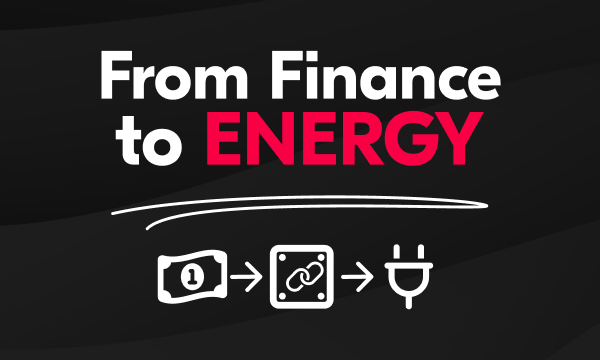Real estate companies have traditionally benefited from keeping secrets. Try to invest in a property and you’ll likely have to wade through a bureaucratic nightmare and dodge widespread fraud. On the other hand financial advisors mostly agree that buying property is a good investment. So why would blockchain real estate startups show their cards?
Interestingly, several blockchain real estate startups have emerged over the last few years. Each intends to disrupt the way real estate industry work. Secrecy is not profitable anymore, especially when middlemen become redundant. A blockchain network, after all, can reduce risk aversion through a trustless environment. In turn, this facilitates property transactions without the need for trusted third parties. Of course the expertize of real estate agent is still a great value. However a greater market demand for transparency in the global economy has spurred innovation in real estate tokenization.
Tokenizing assets makes many processes associated with property transactions happen faster and at a considerably lower cost. This, in turn, enables greater liquidity in the market and makes life of real estate investors way easier. Earlier this month, a $30 million New York property became the first asset to be tokenized using blockchain technology.
This article will shed some light on real estate tokenization and ways real estate startups are increasing returns for property investors.
How blockchains work
In order to unpack some aspects of property tokenization, it is essential to understand the basics of blockchain technology. At its core, blockchain is an ever-expanding decentralized public ledger. Individual blocks contain data, secured with cryptography that are impossible to change. Moreover, each block will have access to a cryptographic hash of the block prior to it. This includes a timestamp and transactional data. Having a publicly-accessible unchangeable ledger adds transparency to real estate industry.
Through smart contracts, blockchain real estate startups remove trust from the equation as well. In a market in which trust is of the great value, smart contracts are the perfect solution. Buyers and sellers can streamline the process of a property transaction.
Tokenization of real estate industry
Blockchains prevent any data manipulation once the information is on the distributed ledger. As a result, the technology records data permanently, efficiently, and transparently so that all parties involved can see the history of i.e. real estate transactions.
Moreover, blockchains prove very difficult to attack due to their decentralized, distributed nature. All these features encouraged the development of peer-to-peer transactions with cryptocurrency. Though since the advent of cryptocurrency, investors including future property owners have sought a way of tokenizing other assets. Real estate tokenization is one such example.
Blockchain startups tokenize an asset ensuring that sellers actually own the property and that the buyer has the funds to cover it through cryptographic smart contracts. A blockchain can seamlessly verify all this data instantly, reducing the time and the total cost of the transaction.
Tokenizing a property into cryptocurrency is the way of property management that allows increasing the security and viability of the purchase, and opens up a global market. To many, blockchain technology has a clear application in the notoriously opaque real estate market. Several blockchain real estate startups have filled this niche by driving innovative solutions.
New opportunities, new risks
In an interview with Tom Bill of Knight Frank, real estate expert, Abimanyu Dayal, said blockchain has the ability to revolutionize the property market due to its ability to increase liquidity rates.
“This could revolutionize the real estate market because it provides 100% liquidity 24/7,” says Mr. Dayal. “If you want to invest in London residential property today you are looking at £700,000-plus and are locked in for seven to nine years. Now you can enter and exit whenever you want and that is how people want to invest.”
However, the regulation of real estate tokenization is still something that is yet to fully settle. Mr. Dayal, however, believes that this will not affect property values, as the currency will always be based on domestic currency and not the token itself. If a dollar appreciates against a crypto, the liquidity of the cryptocurrency allows for an immediate adjustment that offers no arbitrage.
Conversely, Oxford professor and real estate expert Andres Baum believes such a liquid market is neither achievable nor desirable. His research document Proptech 3.0 is the leading word on technology and property.
“If real estate traded more like a stock or a bond, prices might rise due to increased liquidity, but equally they might fall because of greater volatility and risks. The global banking system has survived over the last decade because it has not been forced to mark property assets to market.”
This follows a similar theory which states that the banking system relies on marked property asset value. Investors who seek a different avenue than stocks and bonds may suffer from a lower yield due to a lack of diversification.
Blockchain real estate startups
Despite the risk associated with the property-blockchain collaboration, there have been a few startups run by open-minded real estate professionals who have attempted this marriage – with varying degrees of success. No doubt these companies are some of the pioneers in the industry and their experiences could aid anyone seeking to venture into real estate tokenization and new investment opportunities.
Propy
With an initial ICO that attracted over $15 million in investments, Propy is definitely a must-watch company in the blockchain property space. Founded in 2015, the company allows investors to purchase property through blockchain in a variety of locations, the most prominent being in the USA, Dubai, Europe, and Hong Kong. The company claims to aid cross-border property transactions.
As time develops, the amount of Propy users is expected to grow substantially, so early investors may see a reward for adopting the trend early.
Harbor
Launched in 2017, Harbor topped Propy’s initial capital raising endeavors. The blockchain real estate startup attracted over $38 million from its ICO. The token sale has funded Harbor to the point where they now hold a large share of the market in North America.
Meanwhile, the Harbor token is further backed by Ethereum ERC20, which allows for the resale of the currency as a security. Liquidity aspects are an obvious attraction with the Harbor model.
ShelterZoom
ShelterZoom is an easy-to-use platform that offers potential investors a way to infiltrate the blockchain property market from the comfort of a mobile platform. This includes other functionalities like widgets and a dashboard.
Additionally, the property aspects are straightforward and easily accessed. The company seeks to increase the number of sales over the Ethereum network. Transactions are founded by smart contracts, attracting users from over 22 countries.
StreetWire
Espeo Blockchain is proud to be involved in StreetWire’s mission to innovate the market. We’ve aided in blockchain consulting, writing a technical whitepaper, and designing the company’s landing page. In the future, we plan to support their backend operations. StreetWire is building a decentralized clearing house for real estate data and transactions. It will streamline processes around closing, lending and valuing property while returning value and control to data producers.
The project leverages blockchain technology to support the global adoption in an evolution of the technology in real estate.
Blockchain’s utility
While many industries are thinking of ways to apply a distributed ledger ( and whether it’s worth it), blockchain real estate startups have begun to use the technology. Cutting out expensive middlemen, streamlining financing, and removing trust from transactions are just some of the blockchain’s advantages in this traditionally conservative sector. Cross-border property investment may also increase as the decentralized technology reduces risk and verifies financing. Blockchain technology is poised to disrupt a market in dire need of an update.



